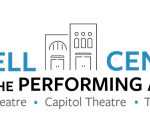
Required Minimum Distributions (RMDs) are minimum amounts that a retirement plan account owner is required to withdraw each year, beginning in the year that he or she reaches 70½ years of age or—if later—the year in which he or she retires.
However, if the retirement plan account is an IRA or the account owner is a 5% owner of the business sponsoring the retirement plan, the RMDs have to start once the account holder is age 70 ½—even if she’s not retired.

What about when a plan owner dies? What are the rules for distributions to their beneficiaries? There are different RMD rules that apply. The entire amount of the owner’s benefit usually must be distributed to the beneficiary who is an individual either:
- Within five years of the owner’s death; or
- Over the life of the beneficiary, starting no later than one year following the owner’s death.
Roth IRAs don’t require withdrawals, until after the owner’s death. The tax-free transfer of an RMD to charity only applies to IRAs. However, there’s a way to give money from your 401(k) to charity tax-free: you need to roll over money from your 401(k) to an IRA and then donate it to the charity.
To do this, you’d have to take your RMD from the 401(k) for this year, before you can do the rollover. You can then roll over 401(k) dollars to the IRA for future charitable transfers. If you do this by the end of the year, you'll be able to begin moving some of the money to charity in 2018, which may fulfill some or all of the RMD from your IRA.
If you're 70½ or older, you can donate up to $100,000 from your IRA directly to charity. The contribution counts towards your RMD and isn't included in your adjusted gross income (AGI), so that may make you eligible for tax breaks linked to your AGI and reduce or eliminate taxes on Social Security benefits.
If you have questions about estate planning or asset protection for your family, consider joining us for a FREE educational workshop. Just click here to reserve your seat today.
Jeffrey Bellomo, Esq.
Reference: Kiplinger (September 22, 2017) “Making Charitable Donations From Your Retirement Accounts”


